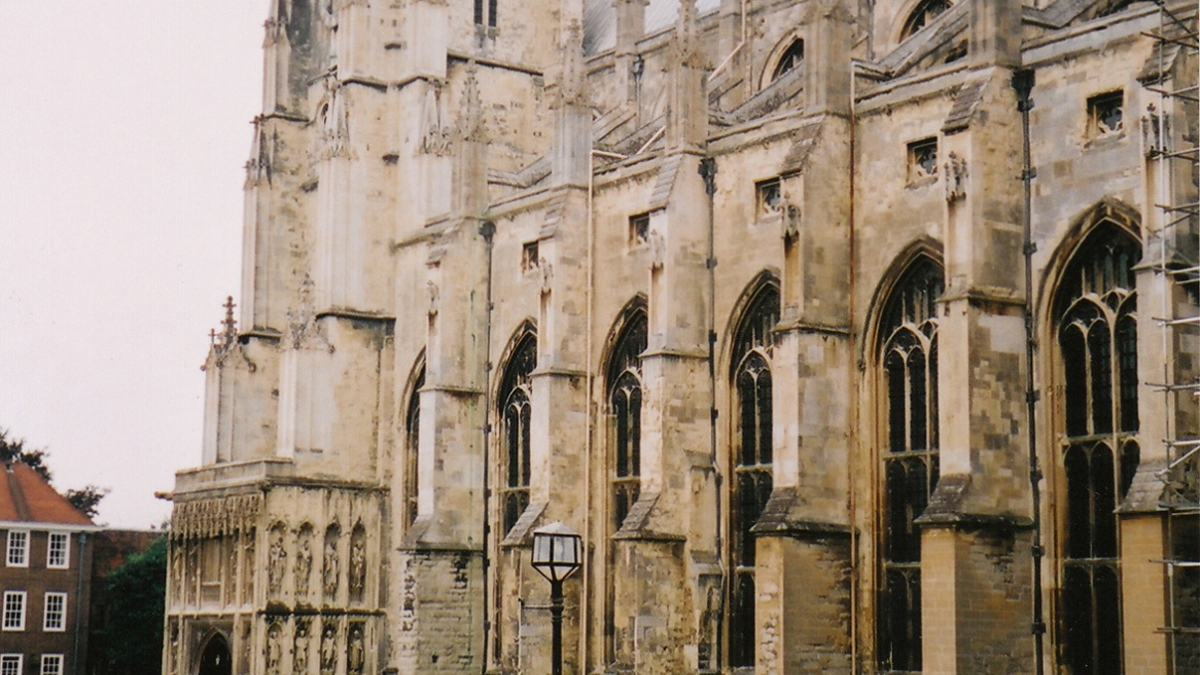Celebration to honor 'father of English poetry'

Geoffrey Chaucer was born in the 1340s in London, and though he is long gone, he is by no means forgotten.
In fact, Chaucer still occupies a prominent place in the English literature canon. Ever since the end of the 14th century, Chaucer has been known as the "father of English poetry," a model of writing to be imitated by English poets.
“He was one of the first poets of his day to write exclusively in English (his contemporary John Gower, for example, wrote in Latin, French, and English). Indeed, it is impossible to imagine the progress of English poetry to this day without Chaucer,” said Richard Newhauser, professor of English and a medieval literature specialist in the College of Liberal Arts and Sciences.
“The beginning of such a seminal modern work as T. S. Eliot's 'The Wasteland' ("April is the cruelest month, breeding / Lilacs out of the dead land …") echoes the beginning of the General Prologue of 'The Canterbury Tales' ("When April with its sweet showers / Has pierced to the root the drought of March…").”
To celebrate Chaucer's life and work, the Department of English and the Arizona Center for Medieval and Renaissance Studies will sponsor a Chaucer Celebration April 1-2, with events ranging from a musical performance to a medieval feast.
“There are any number of reasons why we celebrate Chaucer’s life and works (or the life and work of anyone from the distant past, for that matter), but to put it briefly: Chaucer is one of the best poets to write narrative verse in English,” said Newhauser.
Chaucer is best known as the author of “The Canterbury Tales,” a collection of stories told by a group of travelers who entertain themselves while making a pilgrimage to Canterbury, England.
“’The Canterbury Tales’ remains a lively and profound piece of literature in English, one that speaks to us still after more than 600 years. It is, in other words, a classic,” Newhauser explained.
The Chaucer Celebration begins at 3 p.m., April 1, at the stage area north of the Memorial Union, with an hour-long presentation of The Wakefield Master’s “The Second Shepherds’ Play.”
“’The Second Shepherds’ Play’ was written about 50 years after Chaucer lived, but still well within the period of the Middle Ages,” Newhauser said. “So one reason we are doing ‘The Second Shepherds’ Play’ is because it comes from the era of Chaucer.
“But ‘The Second Shepherds’ Play’ is also a classic in its own right: it is funny, irreverent, and profound all at once, a play that demonstrates the continuing vitality of English medieval drama after more than half a millennium.”
Following the play, from 5 to 6 p.m., there will be a concert by the ASU Early Music Chamber Choir, directed by Ryan Olsen, a graduate student in music, in Organ Hall at the Herberger Institute School of Music.
From 6:30 to 7:30 p.m., in the Durham Language and Literature Building room 165, there will be a Medieval Feast – a potluck of medieval dishes prepared by students and faculty at ASU and anyone else who wishes to contribute.
The activities of April 1 conclude with the first part of a medieval film festival, from 8 to 10 p.m. in the Durham Language and Literature Building room 316. The film “The Name of the Rose” (1986) will be shown.
On Friday, April 2, there will be a roundtable discussion on “Chaucer and Religion,” from 5:30 to 7 p.m. in the Durham Language and Literature Building room 316. The Medieval film festival continues from 7:30 to 9:30 p.m. with “Sword of the Valiant: the Legend of Sir Gawain and the Green Knight” (1984), to be shown in the Durham Language and Literature Building room 316.
On both days, there will be an exhibition of Hayden Library’s rare holdings of Chaucer editions and related material. Display areas include the rotunda and Luhrs Reading Room. The exhibit runs March 22-April 5.
All events are free and open to the public. For more information contact Newhauser at (480) 965-8139 or richard.newhauser@asu.edu, or professor Rosalynn Voaden at (480) 965-3364, or rosalynnvoaden@asu.edu.
For more information about the events, see related story.